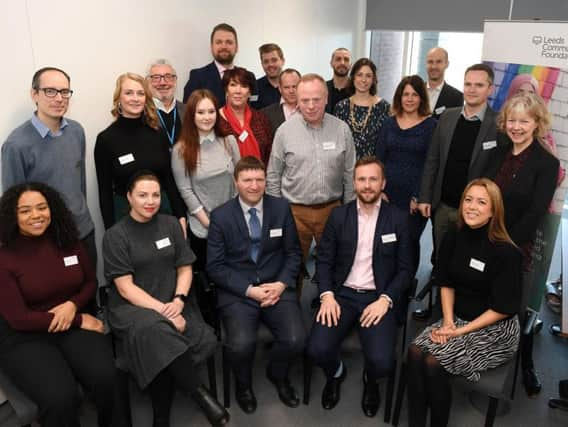Making financial education compulsory in our schools is best way of fighting poverty - Greg Wright


Read more>
It was for a touring production of the classic J B Priestley morality play, An Inspector Calls.
First performed in 1945, but set in 1912, the play points an accusing finger at everyone who believes their comfortable life is shared by all their neighbours.
Advertisement
Hide AdAdvertisement
Hide AdOur actions can have tragic unseen consequences, the play says, and we can harm those who are already trapped by poverty, despair and neglect. Times may have changed but the story is still relevant.
If you stroll around the financial heart of Leeds – and many other provincial cities – you could be forgiven for thinking that the economy is roaring ahead, and benefiting everyone. But you don’t have to travel far from the bustling heart of cities like Leeds to see a very different economic picture.
Growing numbers of people are being forced to rely on food banks. Nationwide, the Trussell Trust supports more than 1,200 food bank centres to provide a minimum of three days’ nutritionally-balanced emergency food to people who have been referred to them in a crisis.
Between April 2018 and March 2019, food banks in the trust’s network provided a record 1.6 million food supplies to people in crisis, a 19 per cent increase on the previous year.
Advertisement
Hide AdAdvertisement
Hide AdLast summer, my colleague Susie Beever visited the Leeds With The Homeless project, which was set up in 2012 to feed, clothe and support anyone struggling. Susie found around 100 people lined up outside Leeds Art Gallery on The Headrow.
Among the crowd were men, women and children who had fallen on hard times for various reasons: drugs, family issues, health problems, low paid jobs and Universal Credit.
“It’s saved my life, and I imagine it’s saved a lot of other people’s lives too, ” said Denise, a Bramley resident who had been using the bank for four years. She turned to the food banks to save money to furnish her property due to being in a low-paid job.
This is the tragedy of our time – there are many hard-working families who are trapped in poverty because their wage does not cover the cost of living. This point was underlined when I chaired an event organised by Leeds Community Foundation to highlight the widening gap between rich and poor in the city.
Advertisement
Hide AdAdvertisement
Hide Ad“Prosperity is not being shared,’’ said Sam Caldwell, the head of grants at the community foundation. “Leeds is increasingly an unequal city. We see that directly through the work that we fund.”
The event, which was held at the office of RSM in Leeds, offered the perfect riposte to anyone who believes we should feel happy with the status quo.
Children are going hungry as change leads to the “hollowing out” of traditional jobs that communities had relied on. Nationally, two million people do not have a bank account. Around 24 per cent of the population do not have savings.
An unexpected life event – bereavement, illness or redundancy – can throw people off a financial cliff edge. Good work is being done by groups across Leeds – and other Yorkshire towns and cities – to promote financial literacy, encourage healthy lifestyles and generally raise aspirations.
Advertisement
Hide AdAdvertisement
Hide AdBut it is the sheer scale of the challenge which is daunting. Tens of thousands of people are being left behind. It’s only through a colossal co-ordinated effort that any difference can be made.
We can take heart from the words of Joe Roche of FinTech North, who was so moved by the stories he heard at the event that he has vowed to take action.
He said: “As a Leeds lad born and bred, and as someone who has been lucky enough to work within the vibrant northern professional services and tech sectors, stories of inequality and poverty hit hard.”
He believes fintech – financial technology – can play a role in providing access to affordable and sustainable financial services. But the battle for hearts and minds must begin in the classroom.
Advertisement
Hide AdAdvertisement
Hide AdYoung people must learn about the nuts and bolts of financial life. It can't solve every problem, but education can protect young adults from sharks and conmen.
Financial education must be compulsory from primary school onwards because it’s our best hope of breaking this terrible cycle of despair.